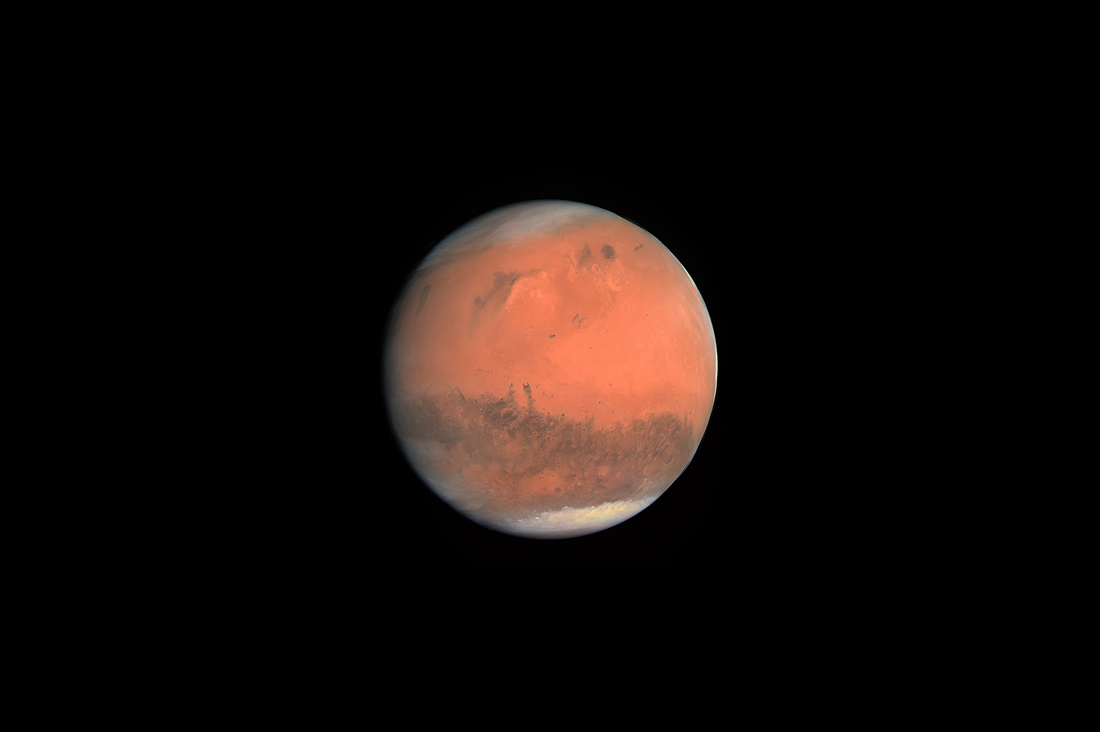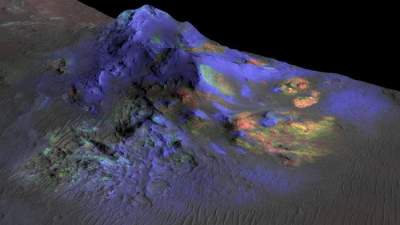Scientists have found, what the implications of a long flight to Mars
Vyacheslav Avdeev
 20th Century Fox Film CorporationКадр from the movie “the Martian” (2015)
20th Century Fox Film CorporationКадр from the movie “the Martian” (2015)
Memory loss, dementia and depression — only a small part of the problems that threaten the astronauts of the future after a long flight to Mars and stay on it. To such conclusion came the scientists looked at mice exposed to the appropriate dose radiation.
Recently the founder of SpaceX Elon Musk talked about his plans for the colonization of Mars. However, the ambitious entrepreneur in his speech not touched upon the protection of the colonists from cosmic radiation.
Meanwhile, more and more researchers called a high dose the main obstacle on the path of humanity to the red planet.
The main source of radiation in space is the so — called cosmic rays, which consist of elementary particles and atomic nuclei moving at very high energies. Part of these particles comes from the Sun in the process coronal mass ejection or solar wind, but the high-energy rays come from deep space. Closing his eyes, the astronauts of the ISS periodically notice flashes of light.
There is an assumption that this phenomenon is associated with the impact of high-energy particles that enters the retina of the eye.
In 2014, NASA released data scientific instruments RAD (Radiation assessment detector), installed on the Rover Curiosity. This device collects data to assess the level of background radiation, which will affect participants ‘ future expeditions to Mars. It is located almost in the center of the Rover, thereby simulating an astronaut inside a space ship.
The data of the RAD instrument showed that during the journey to the red planet and back, the astronaut will receive a dose of radiation not less than 0,66 Star
(sievert — unit of measurement of effective and equivalent doses of ionizing radiation in the International system of units SI). By NASA standards, the maximum permissible dose is from 0.6 to 1 SV for females and from 0.8 to 1.2, This for men. Moreover, evaluation of the RAD tool does not take into account the time that astronauts spend on the planet’s surface.
A new study conducted at the University of California, Irvine, has revealed another negative effect of the prolonged effects of radiation on living organism.
Scientists for 12 weeks was carried out the irradiation of laboratory mice with oxygen ions and titanium in the famous brachmanski laboratory.
In fact, such exposure simulates the exposure of the body during long interplanetary flights. It turned out that the impact of high-energy charged particles causes serious disorders of the brain, including dementia (dementia). The paper was published in the journal Scientific Reports.
“This is bad news for astronauts, who are going to participate in two three-year trip to Mars,’ said Professor radiation Oncology school of medicine at the University of California Charles Limoli, — the space is a new threat for the astronauts. The impact of high-energy particles can lead to a number of possible complications of the Central nervous system such as memory disorders, anxiety, depression, decrease in productivity and decrease in the speed of decision-making.
Many of these adverse effects can continue to evolve for the rest of their lives”.
The researchers also discovered another adverse effect associated with prolonged exposure. It is shown that the rodent brain suppresses the previous bad memories and stressful Association, with the result that the animal has lost the feeling of fear. The authors give the example of a person who with such a lack of fear would have continued to love the water, almost drowning in it.
Six months after irradiation of the brain of experimental animals continues to show signs of inflammation and destruction of neurons. Medical imaging has shown that the work of the neural network is disturbed as a result of reduction of the so-called dendrites and dendritic spines in neurons.
This is of particular synaptic connections, disruption of which leads to problems in the transmission of signals between brain cells. Scientists noticed that similar types of cognitive dysfunctions observed in patients with brain cancer, who received a large dose of radiation during radiotherapy. For the six months mission to Mars astronaut risks to get the appropriate dose of radiation, which can be a serious problem in the planning of future interplanetary expeditions, the research authors say. Indicate whether the results obtained in mice, imminent risk to astronauts? “There is no evidence that the effect of radiation on neurons of the mice’s fundamentally different from the effects on the neurons of the person and data obtained from the study of mice, will help describe the problems that have to be taken into account when assessing the risk and occurrence of human errors,” say scientists.
The work of Charles Limoli is part of a broad program by NASA to study the effects of radiation on the human body and to identify possible ways to mitigate its impact. The spacecraft will have to have zones of increased protection for rest and sleep, the researchers said. However, even these areas of increased protection will not save the crew from cosmic rays of high energies. Also present in NASA thinking about how to reduce the effects of radiation exposure medical way.
In the summer of 2016 in the journal Scientific Reports published another study showing that the astronauts involved in the lunar program of the USA, much more at risk of cardiovascular disease. In the case of expeditions to the International space station astronauts are exposed to much less risk, as the station rotates inside the Earth’s magnetosphere. In fact the field represents additional protection, easing the flow of charged particles.







